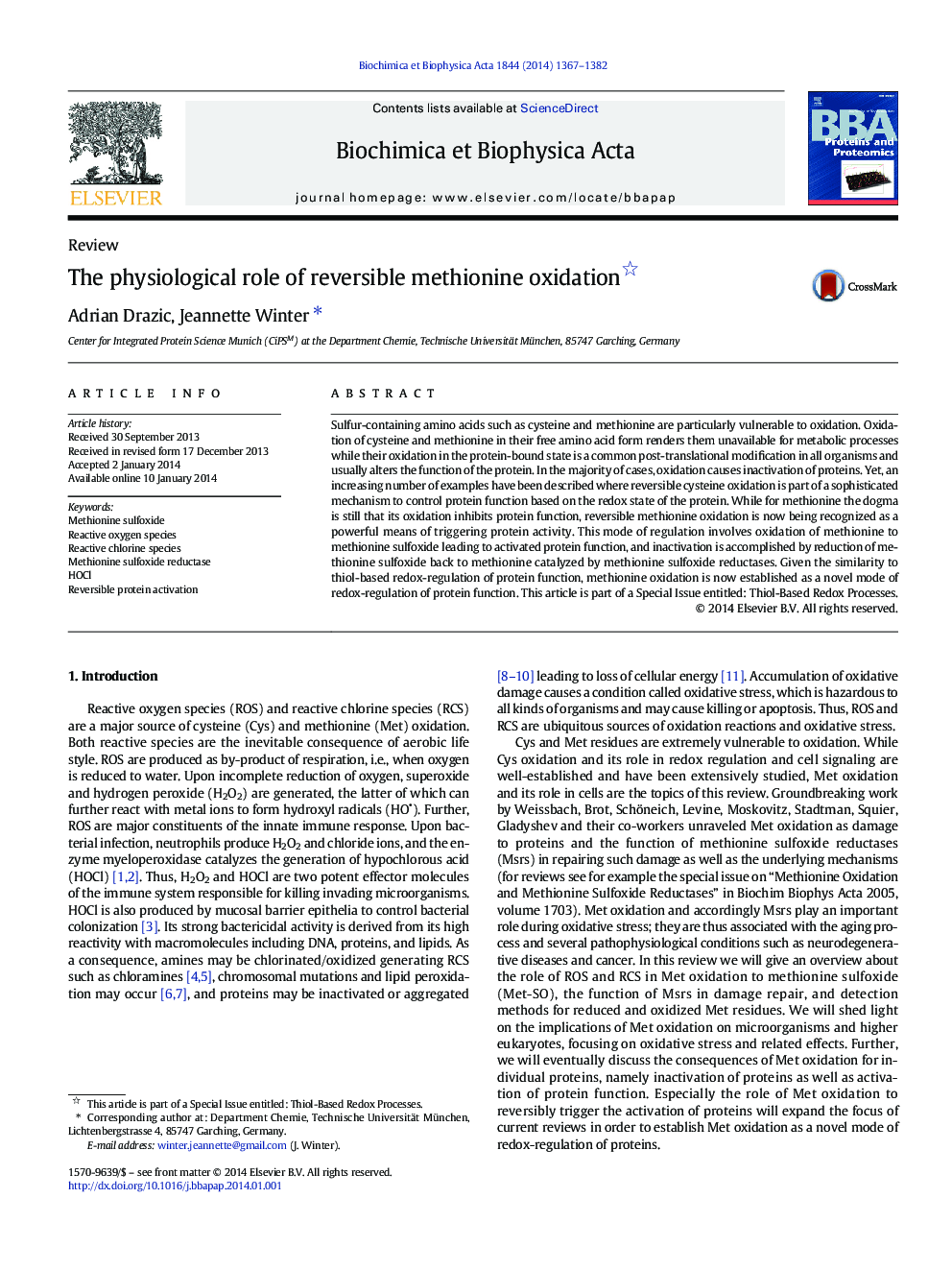| Article ID | Journal | Published Year | Pages | File Type |
|---|---|---|---|---|
| 1177859 | Biochimica et Biophysica Acta (BBA) - Proteins and Proteomics | 2014 | 16 Pages |
•Aerobic conditions and especially oxidative stress cause oxidation of methionines.•Oxidation of methionine to methionine sulfoxide usually causes protein inactivation.•Yet, some proteins are selectively activated by methionine oxidation.•Methionine sulfoxide reductases reduce methionine sulfoxide back to methionine.•Reversible methionine oxidation is a novel mode of redox-regulation of proteins.
Sulfur-containing amino acids such as cysteine and methionine are particularly vulnerable to oxidation. Oxidation of cysteine and methionine in their free amino acid form renders them unavailable for metabolic processes while their oxidation in the protein-bound state is a common post-translational modification in all organisms and usually alters the function of the protein. In the majority of cases, oxidation causes inactivation of proteins. Yet, an increasing number of examples have been described where reversible cysteine oxidation is part of a sophisticated mechanism to control protein function based on the redox state of the protein. While for methionine the dogma is still that its oxidation inhibits protein function, reversible methionine oxidation is now being recognized as a powerful means of triggering protein activity. This mode of regulation involves oxidation of methionine to methionine sulfoxide leading to activated protein function, and inactivation is accomplished by reduction of methionine sulfoxide back to methionine catalyzed by methionine sulfoxide reductases. Given the similarity to thiol-based redox-regulation of protein function, methionine oxidation is now established as a novel mode of redox-regulation of protein function. This article is part of a Special Issue entitled: Thiol-Based Redox Processes.
